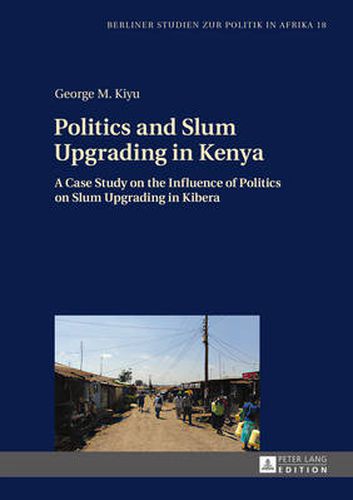Readings Newsletter
Become a Readings Member to make your shopping experience even easier.
Sign in or sign up for free!
You’re not far away from qualifying for FREE standard shipping within Australia
You’ve qualified for FREE standard shipping within Australia
The cart is loading…






This title is printed to order. This book may have been self-published. If so, we cannot guarantee the quality of the content. In the main most books will have gone through the editing process however some may not. We therefore suggest that you be aware of this before ordering this book. If in doubt check either the author or publisher’s details as we are unable to accept any returns unless they are faulty. Please contact us if you have any questions.
Why was the slum upgrading project in Kibera, Kenya, facing resistance? This study uses both qualitative and quantitative methods in data collection to reveal that politics revolving around the interests of local politicians, slum dwellers and business operators as well as external players such as NGOs hamper successful implementation of the slum upgrading project Kenya Slum Upgrading Program in Kibera. The key obstacles include poverty, corruption, tribalism, political interpretation of the project aims, bureaucracy, slum oriented businesses (kadogo economy) as well as NGO activity and youth unemployment.
$9.00 standard shipping within Australia
FREE standard shipping within Australia for orders over $100.00
Express & International shipping calculated at checkout
This title is printed to order. This book may have been self-published. If so, we cannot guarantee the quality of the content. In the main most books will have gone through the editing process however some may not. We therefore suggest that you be aware of this before ordering this book. If in doubt check either the author or publisher’s details as we are unable to accept any returns unless they are faulty. Please contact us if you have any questions.
Why was the slum upgrading project in Kibera, Kenya, facing resistance? This study uses both qualitative and quantitative methods in data collection to reveal that politics revolving around the interests of local politicians, slum dwellers and business operators as well as external players such as NGOs hamper successful implementation of the slum upgrading project Kenya Slum Upgrading Program in Kibera. The key obstacles include poverty, corruption, tribalism, political interpretation of the project aims, bureaucracy, slum oriented businesses (kadogo economy) as well as NGO activity and youth unemployment.